Are you looking to enhance the understanding and effectiveness of your service level agreements? An updated template can significantly streamline communication and ensure all parties are aligned on key expectations and responsibilities. In this article, we'll explore essential elements to include in your SLA update, making it clearer and more comprehensive. Join us as we dive into the nitty-gritty of creating an effective service level agreement that meets your needs.
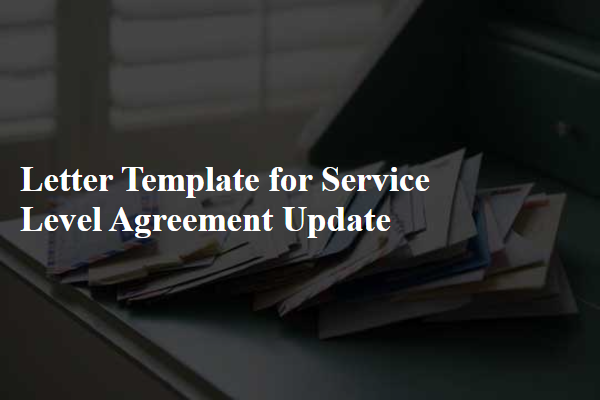
Parties Involved and Contact Information
An updated service level agreement (SLA) should clearly outline the parties involved, including entities such as Company A, a technology service provider located in San Francisco, California, and Company B, a financial services firm based in New York City. Essential contact information must include designated representatives: John Smith from Company A, reachable at john.smith@companya.com and (555) 123-4567, alongside Jane Doe from Company B, accessible via jane.doe@companyb.com and (555) 987-6543. Each party's address should be noted, with Company A at 123 Tech Lane, San Francisco, CA 94105, and Company B at 456 Finance Blvd, New York, NY 10001, ensuring clarity in communication protocols throughout the SLA.
Scope of Services and Performance Metrics
The Scope of Services in the updated Service Level Agreement (SLA) clearly outlines the specific functionalities and deliverables expected from the service provider, such as IT support, cloud storage, and data management services. Performance Metrics include key indicators like system uptime, typically targeted at 99.9%, and response times for customer inquiries, usually set at under 24 hours. Regular review cycles, occurring quarterly, will ensure adherence to these metrics, fostering accountability and continuous improvement. Additionally, escalation procedures are defined to address instances where performance does not meet established benchmarks, providing structured pathways for resolution.
Responsibilities and Obligations
Service Level Agreements (SLAs) clearly define expectations and responsibilities in business relationships, particularly in IT services. Key components include availability metrics, such as 99.9% uptime for critical applications, response times for support tickets (often within one hour for high-priority issues), and maintenance schedules specifying regular downtime windows (e.g., monthly maintenance on the first Saturday). Additionally, obligations include data security protocols in compliance with regulations like GDPR for European customers and regular reporting of system performance metrics. These elements ensure both parties understand their commitments and the consequences of failing to meet these defined standards, fostering accountability and transparency.
Terms and Conditions Update Details
Service level agreements (SLAs) are essential legal contracts outlining the expected level of service between providers and clients. Recent updates to terms and conditions have been implemented to ensure clarity and compliance with new regulations. Key changes include response time commitments, which now specify a maximum response time of 2 hours for critical issues (previously 4 hours). Additionally, service availability has been adjusted to 99.9% uptime, which reflects industry standards, specifically taking into account peak usage times. Furthermore, clauses regarding penalties for service level breaches have been updated; clients may receive a 10% service credit for each hour of downtime beyond the agreed limits. It is crucial for all parties involved, such as legal teams and service managers, to review these updates carefully to ensure mutual understanding and adherence moving forward.
Signature and Agreement Acknowledgement
A revised Service Level Agreement (SLA) ensures clarity and alignment between service providers and clients regarding service expectations. Key terms such as response time (typically 24-hours for critical issues), uptime (99.9% availability clause), and resolution timeframes (usually four hours for high-priority tickets) are crucial for performance measurement. Additionally, specific metrics related to customer satisfaction surveys, defined as a minimum score of 80%, and penalties for non-compliance, which can result in up to a 10% reduction in monthly billing, are outlined. The acknowledgment section requires signatures from designated representatives to confirm agreement and commitment to the updated terms, fostering accountability and protecting both parties' interests.

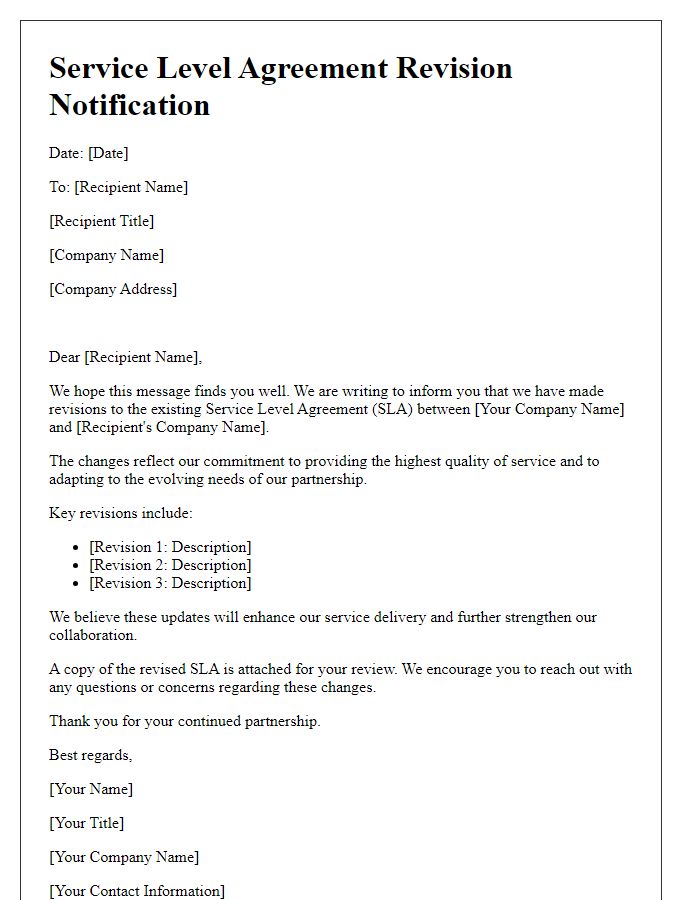
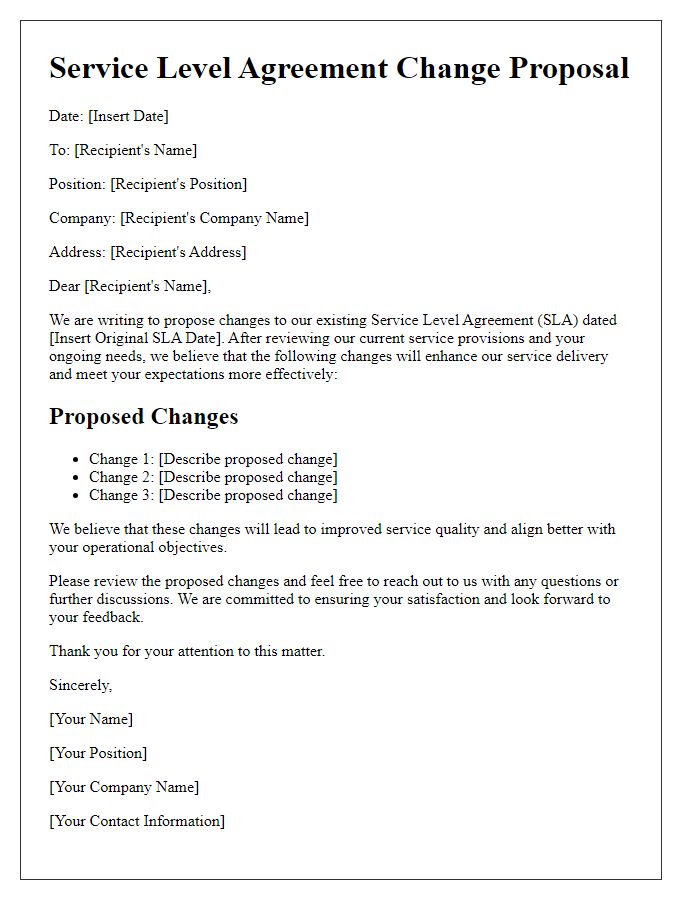
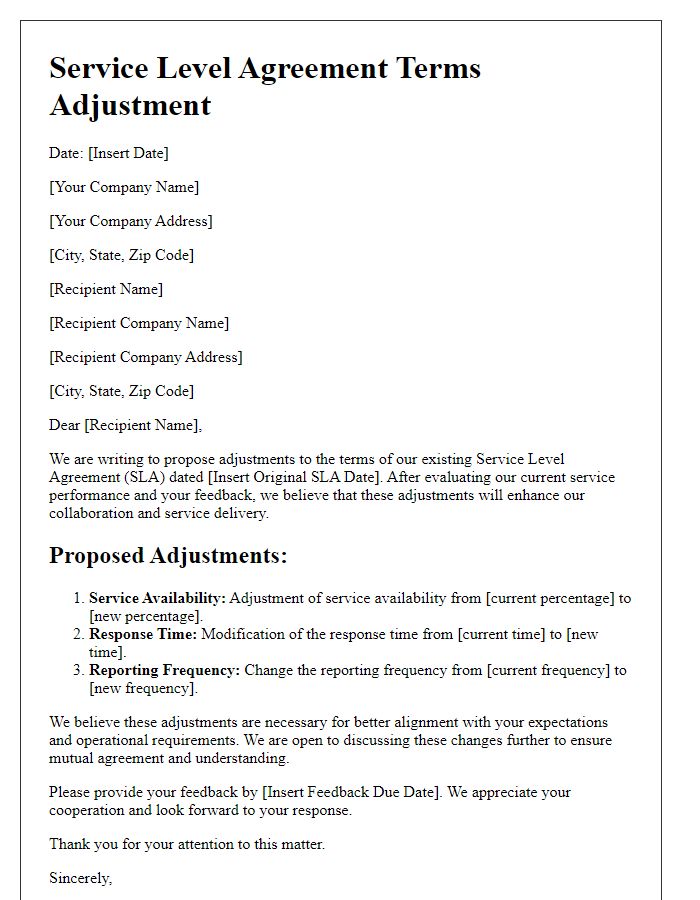
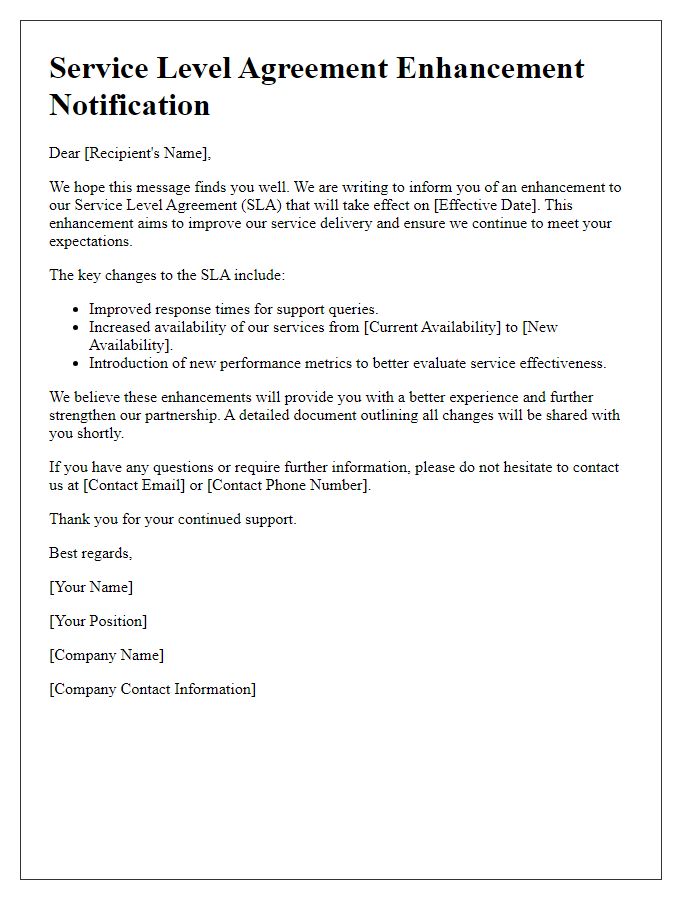
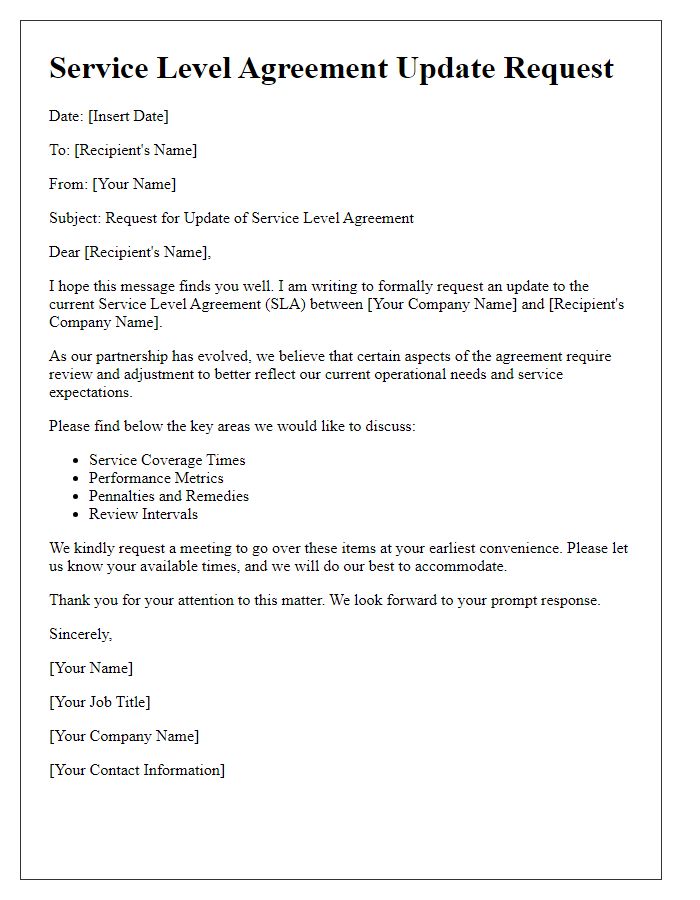
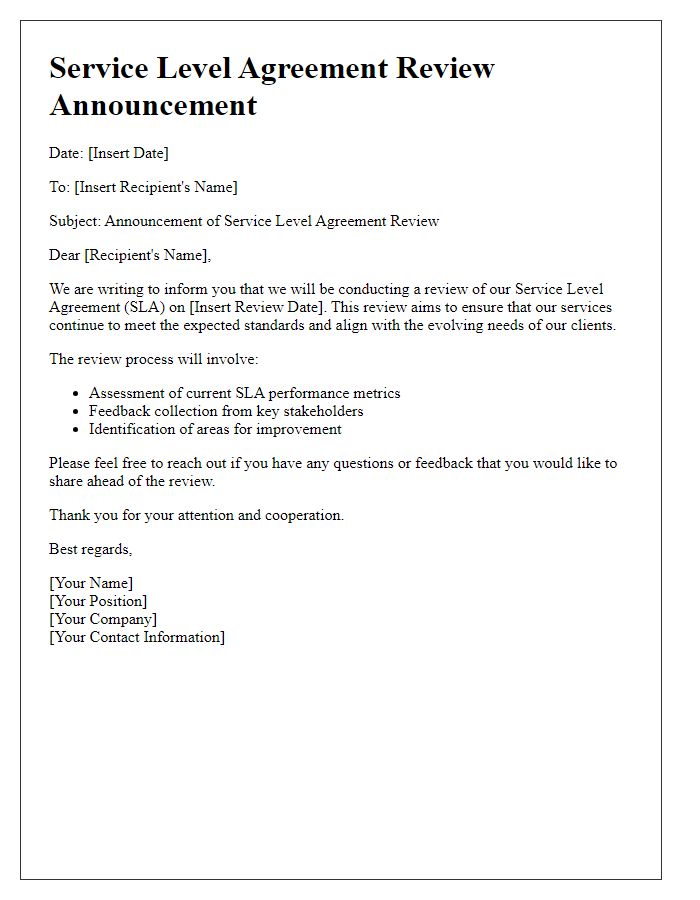
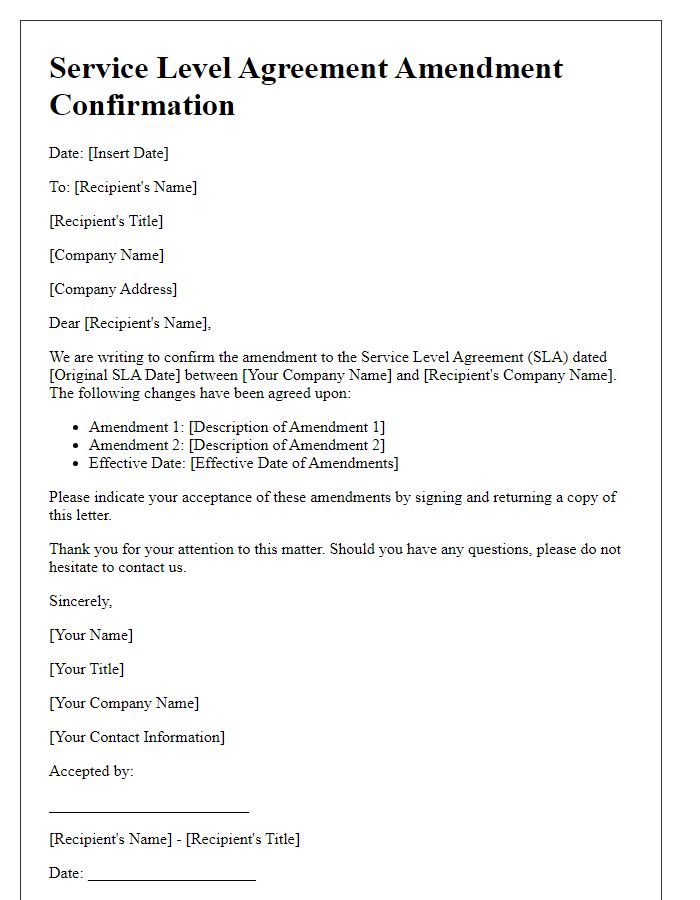
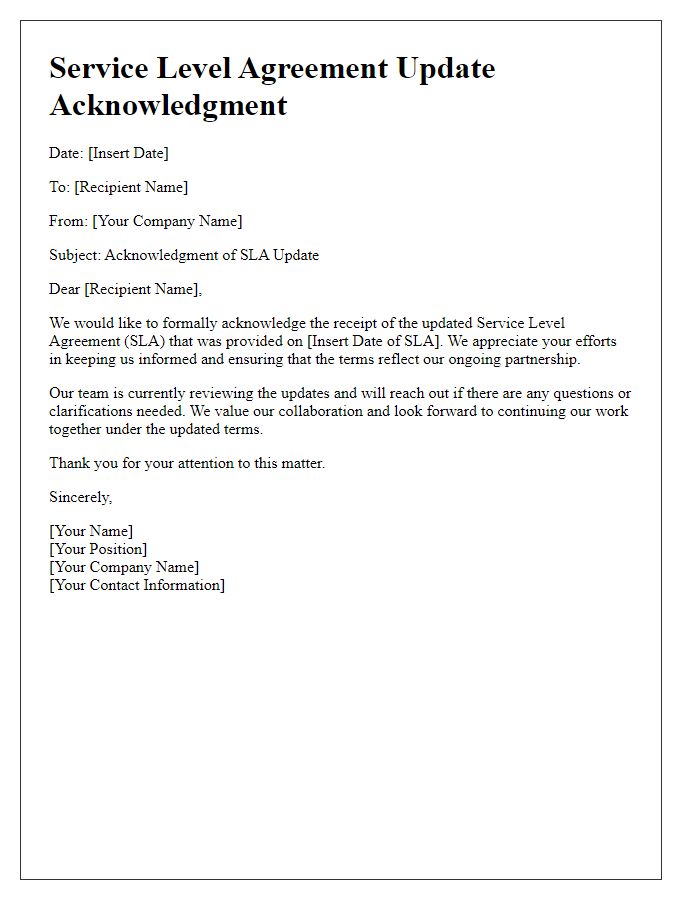
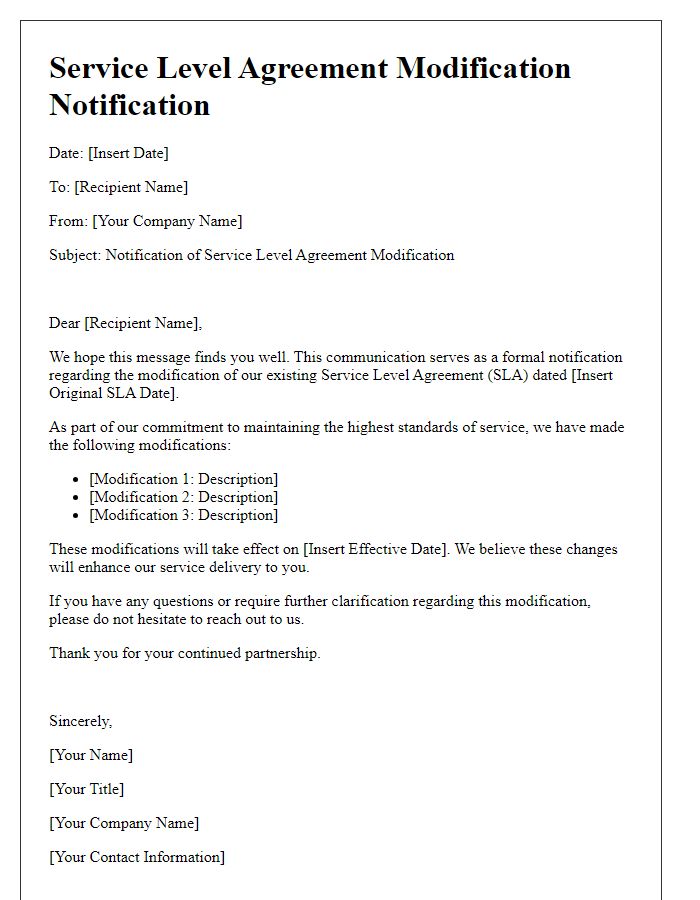
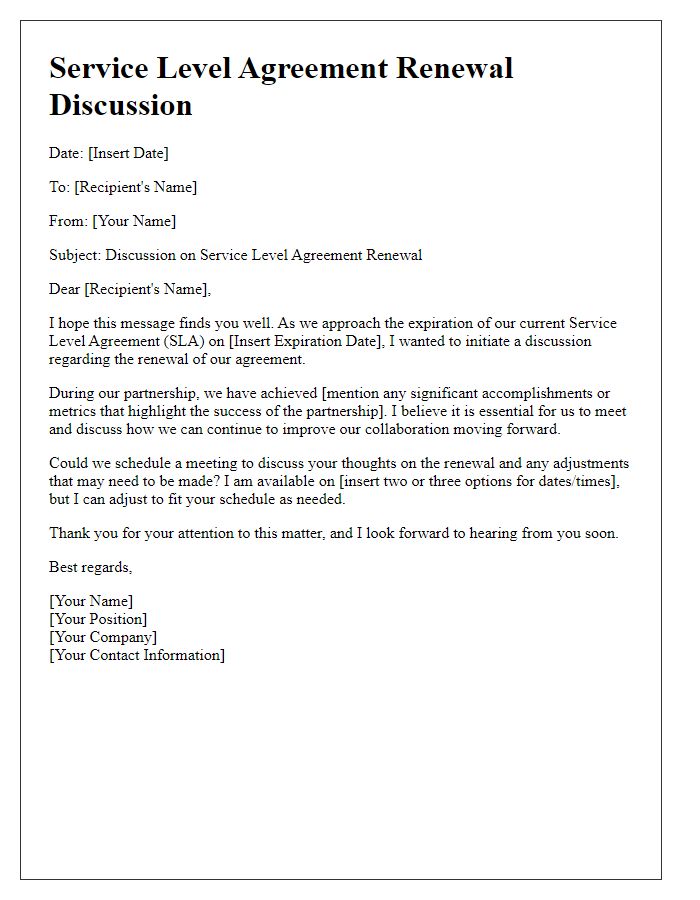


Comments